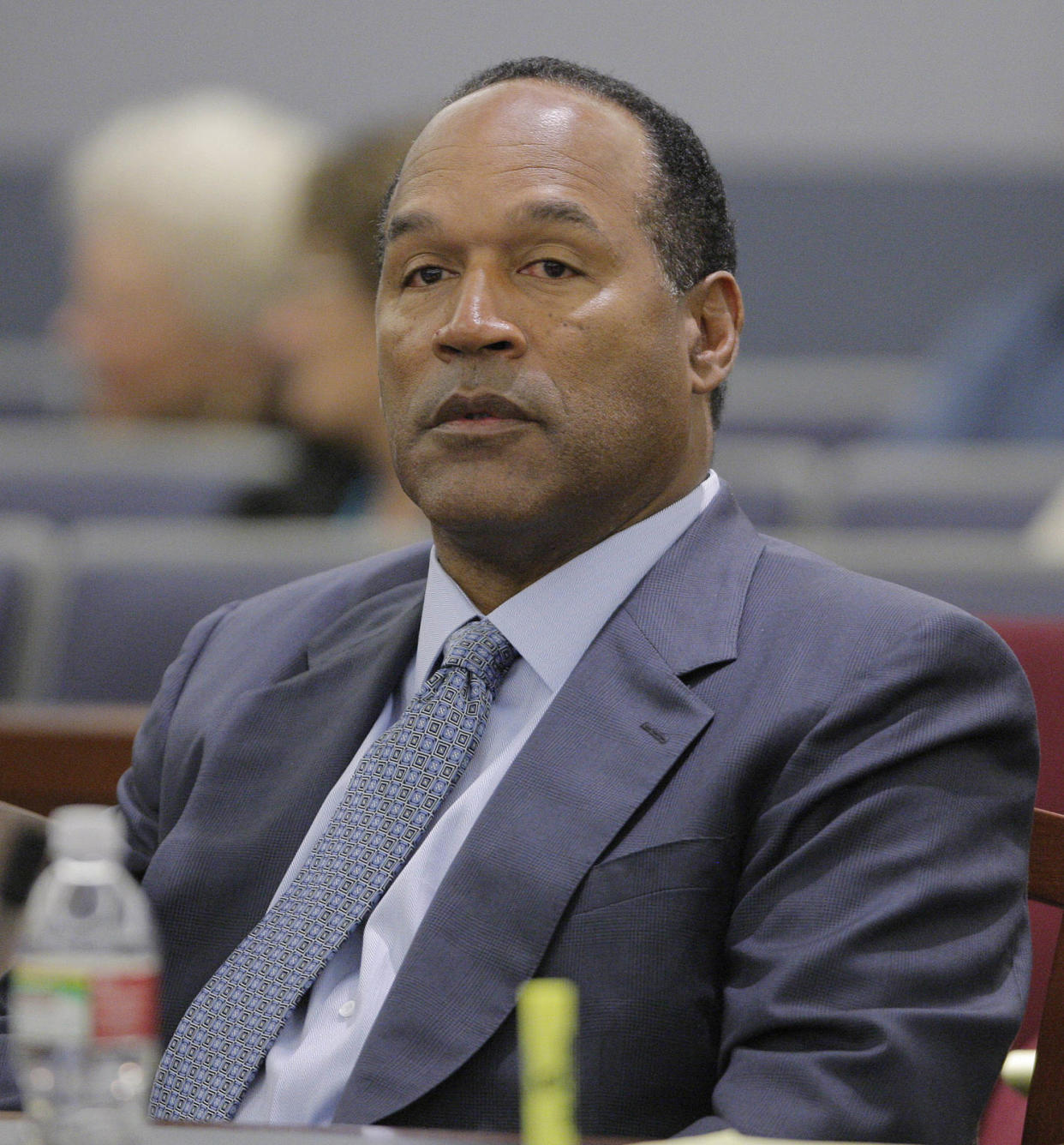What kind of cancer did O.J. Simpson have? Former NFL star dies at age 76
O.J. Simpson has died of cancer at age 76, according to his family.
The former NFL player who was famously acquitted of murdering his ex-wife Nicole Brown Simpson passed away on April 10, 2024.
"On April 10th, our father, Orenthal James Simpson, succumbed to his battle with cancer," read the statement, posted to X, formerly known as Twitter, on Thursday. "He was surrounded by his children and grandchildren. During this time of transition, his family asks that you please respect their wishes for privacy and grace."

Simpson's death comes a few months after reports began circulating in February that the athlete was in hospice and had been diagnosed with prostate cancer. NBC Sports reported at the time that he was undergoing chemotherapy.
On Feb. 9, Simpson shared a video of himself on X debunking the rumors. He did not address his cancer diagnosis but said he was doing well.
“No, I am not in any hospice. I don’t know who put that out there,” he said, adding he would be hosting friends for the upcoming Super Bowl in Las Vegas. “All is well.”
On April 10th, our father, Orenthal James Simpson, succumbed to his battle with cancer.
He was surrounded by his children and grandchildren.
During this time of transition, his family asks that you please respect their wishes for privacy and grace.
-The Simpson Family— O.J. Simpson (@TheRealOJ32) April 11, 2024
Simpson, a former NFL running back, actor and broadcaster, is best known for his 1995 acquittal in the double murder trial of his ex-wife Nicole Brown Simpson and her friend Ron Goldman. The trial was the subject of the Emmy Award-winning series “The People v. O.J. Simpson.”
What kind of cancer did O.J. Simpson have?
Simpson's family did not specify what kind of cancer he had in their statement confirming his death. However, reports had circulated earlier this year that he'd been diagnosed with prostate cancer, according to NBC News.
In May 2023, Simpson shared in a video posted on X that he was undergoing treatment for cancer, though he did not specify what type of cancer.
“In recent years, really recent years, I unfortunately caught cancer. So I had to do the whole chemo thing,” he said.
“I had COVID and cancer at the same time, unfortunately,” he added. “I am over the chemo.”
At the time, he said he was “healthy now. It looks like I beat it. I’m happy about that.”
What to know about prostate cancer
Prostate cancer is one of the most common types of cancers, according to Mayo Clinic. It occurs in the prostate, which is a "small walnut-shaped gland in males that produces the seminal fluid that nourishes and transports sperm."
Symptoms include:
Trouble urinating
Decreased force in the stream of urine
Blood in urine and semen
Bone pain
Erectile dysfunction
Unexplained weight loss
Prostate cancer is most treatable if detected early. It usually grows slowly and stays within the prostate gland. However, there are some types that are aggressive and spread quickly.
“If it’s caught early, prostate cancer is very treatable, very curable,” Dr. Abhinav Khanna, a urologist at the Mayo Clinic in Rochester, Minnesota, told NBC News.
The Prostate Cancer Foundation recommends that Black men or men with a family history of cancer get screened starting at age 40. Otherwise, the recommended age to start screening is 45.
Black men may have a greater risk of prostate cancer than other races and are more likely to develop aggressive or advance prostate cancer. Black men in the U.S. are also twice as likely to die of prostate cancer as white men, NBC News reported. It's not clear why, but one possible explanation is that Black men are less likely to be screened or receive treatment, research has shown.
“Not all prostate cancer is lethal, but we have seen that black men do have a higher risk of dying from prostate cancer,” Khanna added.
It's not known what causes prostate cancer, but there are some factors that increase one's risk. In addition to race, being over 50, having family history of breast or prostate cancer, and having obesity can all play a role.
What did O.J. Simpson die of?
Simpson died of cancer at age 76 on April 10, 2024, according to his family. They did not specify the type of cancer, but reports from earlier this year stated that he had prostate cancer.
This article was originally published on TODAY.com
